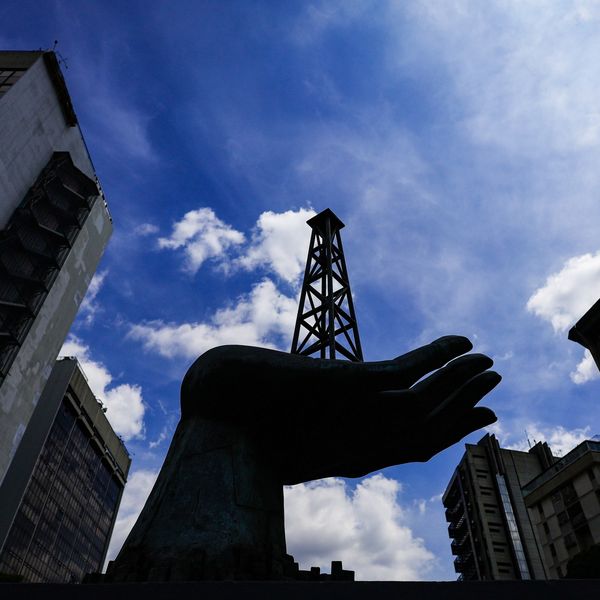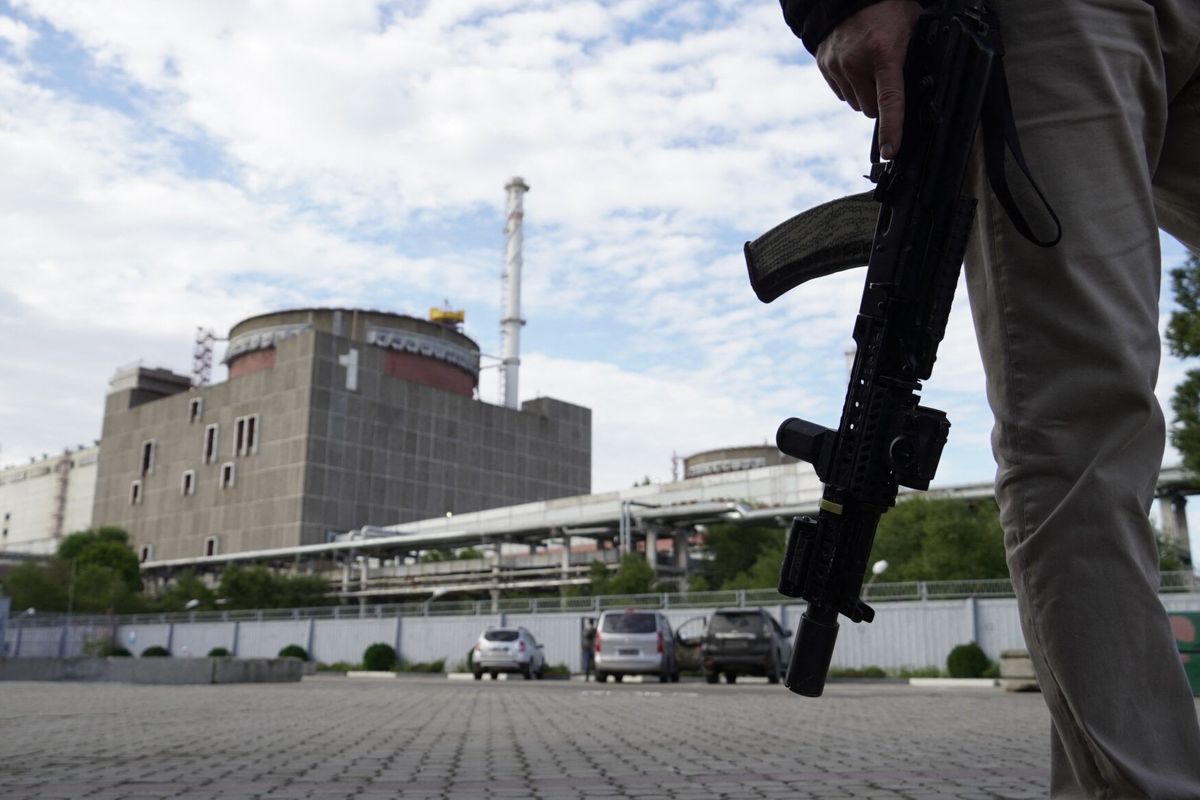Militaries are more rapidly adopting green technology used to counter climate change to bolster their energy security and navigate increasingly complex logistics challenges.
The Cipher Brief recently spoke with Sherri Goodman, Secretary General of the International Military Council on Climate Security and Senior Strategist for the Center for Climate and Security, about the impact of climate change on national security and how this affects how the US can "remain militarily competitive in a changing energy environment."
EXPERT Q&A
The Cipher Brief: What are some examples of how green technology is being used to bolster our national security? And how are these applications helping wider climate efforts?
Goodman: If you look at what some of our militaries are doing to secure their energy supplies and also to remain militarily competitive in a changing energy environment, you see that they're in some ways modeling the future.
The US military is now putting micro grids at every major military base. And that's not just about climate risk. It helps with that, but it also helps energy security in general because it makes the base less vulnerable to the grid going down outside the base, or a cyber attack, or another deliberate attack. It lets you have more diversity of supply at the local level.
As we move more towards these distributed energy grids and ultimately micro grids, you'll have greater security and the ability to add more renewables as the source of energy onto those grids. You’ll able to use smaller, more localized sources of power and eventually better batteries.
And that's the really big technology push right now: to advance battery storage capacity on micro grids for longer term storage.
The US is investing heavily in better batteries, both in the civilian and in the military sector. There are certain areas where military needs to align with general commercial and civilian needs in the energy transition where the military's investment in research and development and technology innovation can have spinoff benefits. And one of those is in batteries.
The other is in nuclear. For example, small modular nuclear reactors. Obviously, militaries, have used nuclear fuel for years.
Let me back up and say that we have 100 plus large reactors in the world today. We need those reactors to solve the climate crisis. We will need nuclear carbon free power. But we obviously have to do it safely and securely. And over the last decade or so, the US has not been competitive in the commercial civilian nuclear power market.
And so it's now investing, thanks to the large investments in the Inflation Reduction Act and the Infrastructure Bill, in next generation nuclear. And that will help our allies and partners around the world because it gets the US back into the nuclear game in a safe and secure way. And that's going to be important for the future. So the military also can be a leader, there.
And then of course militaries use a lot of vehicles. As you electrify, not just what we call cars, but light duty vehicles and eventually heavy vehicles, that electrification will also have major benefits as we seek to electrify eventually, let's say, the trucking sector.
Cipher Brief Subscriber+Members enjoy unlimited access to Cipher Brief content, including analysis with experts, private virtual briefings with experts, the M-F Open Source Report and the weekly Dead Drop - an insider look at the latest gossip in the national security space. It pays to be a Subscriber+Member. Upgrade your access today.
The Cipher Brief: Why should sustainability and green technology be considered in national security discussions?
Goodman: So all of this is about reducing the risk in what we call now a contested logistics environment. Contested logistics in modern warfare.
We learned the hard way in Afghanistan and Iraq that when you had to transport a lot of liquid fuel, oil and gas, to the front, you were putting soldiers and Marines driving those trucks at risk from an IED and improvised explosive attack. And so already 10 years ago, the US and European militaries were innovating in how to reduce the logistics supply vulnerabilities from trucking fuel and water to the front. Three main things that go on military convoys to the front of any war is fuel, water, and ammunition. So if you can reduce your need to truck fuel and water to the front — either you can find sources of water in country or, for this discussion, you can have diversity of energy supply — then you reduce the vulnerability of your logistics supply chain.
You have to be able to perform your mission. If your mission is, "I've got to take that beachhead with an amphibious landing," or, "I've got to move this battalion into this location," or, "I've got to be able to sortie these fighter jets from base X to base Y, and I need the fuel to do it," then you need to be able to.
When we talk about mission assurance, it's assuring that you've protected whatever military mission you're going to do from cyber threats, from other deliberate attacks, from supply shortfalls, whatever they might be, any kind of spare part, for example, you could think of. But also increasingly, energy.
Twenty years ago, when we did a war game about a conflict in the Pacific or in Europe, we always assumed that our forces would have whatever energy supplies they needed at the fight. We didn't constrain energy. And in the last decade, now with energy awareness, we've constrained it. We've realized that efficiency is so important, and that the source of supply actually really matters.
The Cipher Brief: Since we’re talking about climate change, are there any other risks from the “natural world” that can impact national security?
Goodman: We also see the threat of sort of ecological risks. We see in the pandemic that we face that there are connections between the human systems and natural systems that can produce these COVID variants that spread more easily from animals to humans. And then we also see that we are putting the biological wealth of our planet at risk in many ways, by excessive deforestation, the devastation of coral reefs and ocean acidification. So, we should not lose sight of the fact that we need also to secure the biodiversity of our planet in order to make it enduring and sustainable for our children.
Cipher Brief Writer Ethan Masucol contributed to this report.
Read more expert-driven national security insights, perspective and analysis in The Cipher Brief













